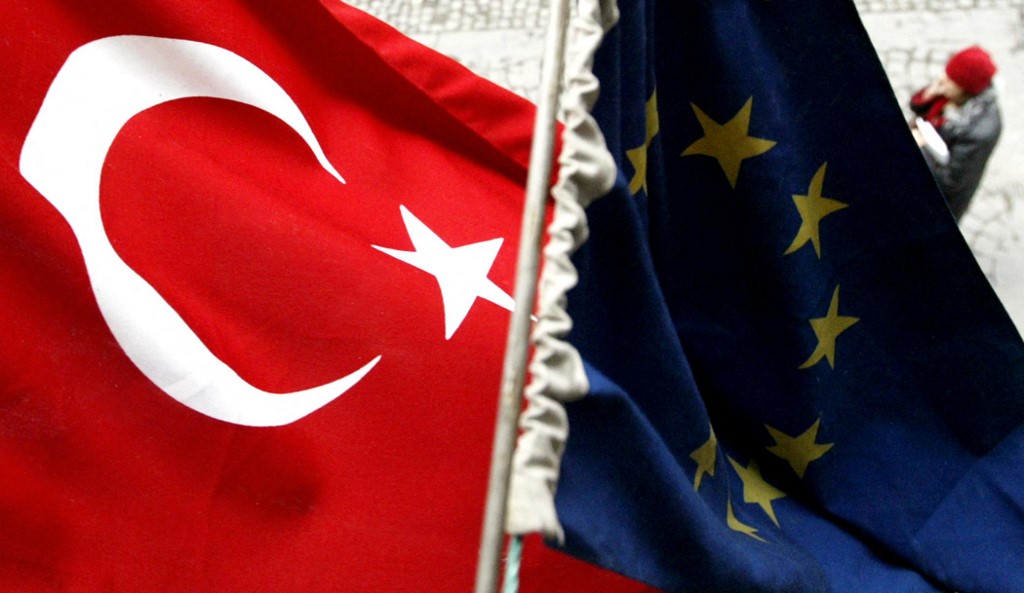The European Commission in its yearly report on Turkey released on Wednesday said there are “serious concerns” about the continued deterioration of democratic standards, the rule of law and respect for fundamental rights in Turkey during the reporting period, the Stockholm Center for Freedom reported.
“The overall human rights situation in the country has not improved and remains an issue of concern,” the report said.
The EU criticized Turkey’s presidential system for undermining parliamentary power, limiting legislative oversight and curbing opposition influence. With broad executive powers centralized under President Recep Tayyip Erdoğan, the report noted, parliament’s ability to hold the government accountable has diminished, particularly through the use of presidential decrees.
Additionally, the report condemned the replacement of opposition mayors with government-appointed trustees, labeling the practice a severe blow to local democracy and voters’ rights.
Judicial independence was also highlighted as a key area of concern. The EU report pointed to executive interference in the operation of the judiciary and the lack of enforcement of rulings from both the Constitutional Court and the European Court of Human Rights (ECtHR). Turkey’s continued detention of prominent figures like Osman Kavala and Kurdish leader Selahattin Demirtaş, despite ECtHR orders for their release, was also criticized.
The report cited Turkey’s broad application of anti-terrorism laws as another persistent issue, which led to the targeting of journalists, activists and political opponents, severely restricting civil liberties. Civil society organizations (CSOs), particularly those advocating for minority and women’s rights, have also faced intense scrutiny, with systematic audits and investigations stifling their operations.
The EU called on Turkey to align its legal standards with European norms, specifically in ensuring fair trials, suspects’ rights and the presumption of innocence. The report reiterated that until significant reforms are undertaken, Turkey’s EU accession talks will remain at a standstill.
The report said Turkey remained at an “early stage of preparation” in the area of freedom expression and that “no progress was made during the reporting period.” Internet and media freedoms were severely curtailed with excessive fines against independent media outlets, censorship and legal measures that stifle freedom of expression online. The report also highlighted the erosion of the right to free assembly, noting Turkey’s frequent use of force against protesters, bans on public gatherings and restrictive civil society regulations.
In terms of minority rights, the report emphasized continued difficulties such as the lack of legal status for religious institutions, protection for minority languages, schooling support, clergy training, access to media in minority languages and complications in enjoying property rights.
The report also requested thorough investigations for hate crimes against religious minorities in the face of acts of vandalism and the destruction of minority places of worship and cemeteries that took place during the reporting period.
The EU further recommended bolstering protections against discrimination, calling for stronger legal safeguards for women, minorities and LGBTQ+ communities. The report pointed to high femicide rates, Turkey’s withdrawal from the Istanbul Convention and discriminatory practices against LGBTQ+ individuals as critical human rights concerns. Additionally, it raised alarm over Turkey’s handling of refugees, particularly the forced return of Syrians on the pretext of security, and restricted access to legal protections and services.
The EU also urged Turkey to implement protections for individuals with disabilities and address the inadequate support for child rights, especially in access to education and child labor protections.
The Turkey 2024 Report is part of the European Union’s annual assessment of Turkey’s progress and setbacks as a candidate country for EU membership. Each year, the European Commission issues detailed reports on countries aspiring to join the EU, evaluating their alignment with EU standards and addressing democratic governance, human rights, rule of law, economic policies and more.
